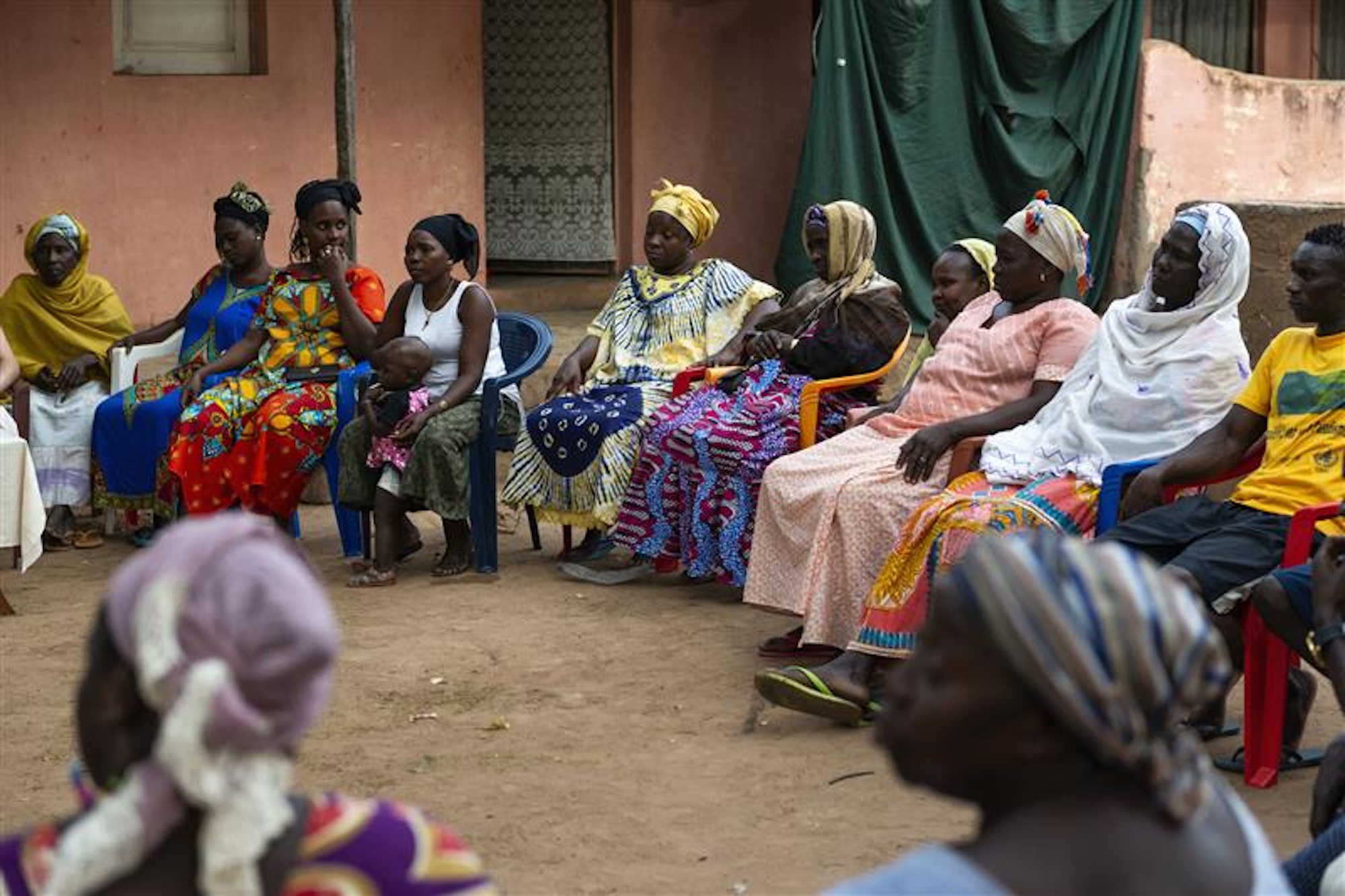Africa’s urgent mental health crisis: we need a paradigm shift to break the stigma and improve access to care
Marieme Gueye, an MPP student and a Mastercard Foundation Scholar under the Africa Oxford Initiative (AfOx) who runs a social enterprise dedicated to improving mental health across Africa, explores the challenges and opportunities for addressing the continent’s mental health crisis. This forms part of her research presented at the Oxbridge African Scholars Summit.

According to the World Health Organization (WHO), mental health is a fundamental human right and crucial to socio-economic development.
Yet over 75% of individuals with mental health conditions in low-and middle-income countries do not receive treatment. The situation in Sub-Saharan Africa is particularly concerning, with 60% of the population under 24, nearly 37 million adolescents (aged 10–19 years) live with a mental disorder, and one in four children has a parent with a mental health condition.
Despite this, most African governments allocate less than 1% of their health budgets to mental health. In Ghana, for example, only 1.8% of the total health budget in 2017 was dedicated to mental health. The lack of funding is compounded by barriers such as limited mental health education, a shortage of trained professionals and facilities, the high cost of treatment and sociocultural stigma that often prevents early diagnosis and treatment.
The need for a paradigm shift
The scale of Africa’s mental health crisis demands attention. While global organisations have made strides in recognising mental health as a development priority, such as the inclusion of mental health in Sustainable Development Goal 3 and the World Bank’s ‘Out of the Shadows’ initiative in 2016, progress remains slow. The lack of investment in mental health remains stark. For example, only 29% of African countries have child and adolescent mental health policies, and there are only 0.2 mental health workers per 100,000 children. Closing this gap is crucial to ensuring future generations receive the support they need.
Mental health should be at the forefront of the agenda and key stakeholders from the public, private and philanthropic sectors should join efforts to tackle the current stigma and lack of healthcare resources. Africa needs a paradigm shift in the way it addresses mental health. This means transitioning to a state where mental health is prioritised, and everyone has access to care, support, and treatment. It involves adopting initiatives and technologies to foster a strong sense of social connectedness and adapting environments to support health and wellbeing.
The way forward
At this year’s Oxbridge African Scholars Summit, I had the opportunity to present my research titled “Tackling Mental Health in Africa: A Joint Effort from the Public, Private, and Philanthropic Sectors.” The summit serves as a dynamic platform where African scholars from Oxford and Cambridge come together to connect, collaborate, and celebrate the richness of African scholarship. In my presentation, I highlighted the urgent mental health crisis on the African continent and emphasised the need for multi-sectoral collaboration to address it effectively.
We must convene key actors across the public, private, and philanthropic sectors to develop high-impact interventions and unlock additional resources. One way to achieve this could be by providing incubation and accelerator programs funded by donors to support Micro, Small and Medium Enterprises that are developing technologies and solutions to improve mental health. Another approach could involve developing a standardised mental health framework for organisations, similar to the Environmental, Social, and Governance (ESG) framework. Such a framework could deepen commitment to mental health across sectors.
Sector specific interventions in education are crucial. Embedding mental health in the school curriculum by developing culturally appropriate mental health literacy programmes for students, teachers and parents will improve early detection and reduce stigma. This can be achieved by teaching students emotional regulation, coping strategies, and how to seek help. Teachers should also be equipped to identify, support and refer students struggling with mental health challenges and parents need to be engaged through community discussions and accessible educational materials.
Data-driven insights are essential for raising awareness, enabling early diagnosis, and informing effective policymaking. The lack of mental health literacy hinders early recognition of disorders, impedes the mitigation of stressors, reduces access to support and treatment, and undermines social or financial support for mental health initiatives. To address this, we need to ensure mental health data is widely available at the national and subnational level.
It is crucial to develop and implement innovative methods that are tailored to the local cultural context and help tackle the mental health stigma. This might involve providing formal mental health training to traditional healers or using platforms like WhatsApp to deliver therapy sessions, making support more readily available.
By integrating mental health education into schools and promoting cross-sector partnerships, we can transform the mental health landscape in Africa. These initiatives will not only improve access to care but also play an essential role in breaking down the stigma that surrounds mental health.
Driving change through innovation
My social enterprise, Hiwerr, has been actively working to bridge the mental health gap in Africa by raising awareness and supporting women in Senegal improve their wellbeing. Through a learning hub and a series of events and workshops led by mental health professionals, we provide women with the tools to prioritise their mental health.
Our goal is to contribute to the mental, emotional, social and physical development of girls and women in Senegal and ultimately, across Sub-Saharan Africa. We want to create a safe space where women can connect, share experiences, and inspire one another. We remain committed to driving change and expanding our initiatives to support mental well-being across the continent.

